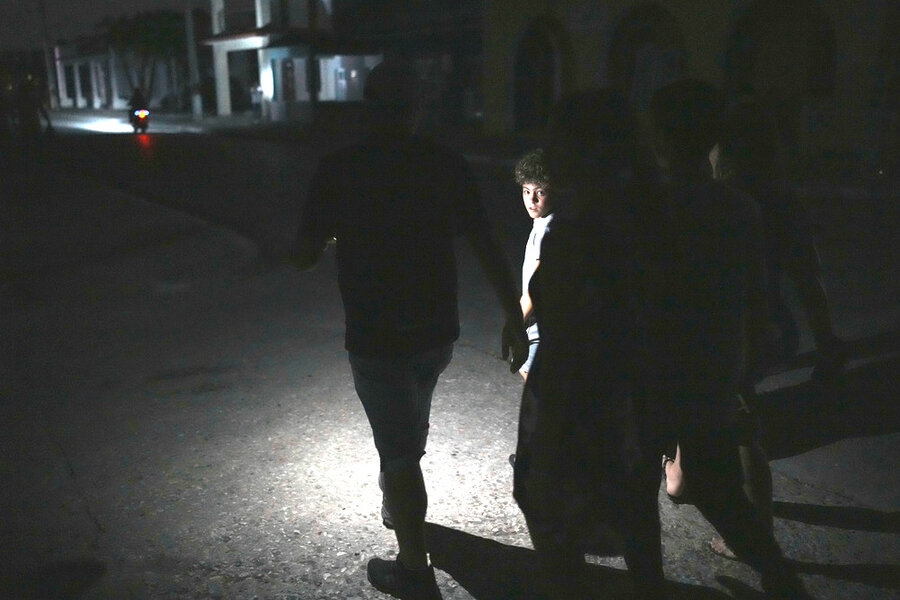Flagging the flashes of freedom
When leaders of the world’s democracies opened their third annual summit on Monday in South Korea, they focused mainly on how to defend themselves, particularly from foreign influence. The tone was dark. Just the day before, however, news broke of democracy on the march, literally.
In Cuba, hundreds of people protested March 17 in several cities, shouting, “Freedom” and demanding basic services like electricity from the Communist regime. Also on Sunday, thousands of Russians lined up at noon outside voting stations in a silent challenge to a sham election designed to keep Vladimir Putin in power. Just a few days earlier, thousands of people in Iran used the country’s annual fire festival to dance in the streets, shouting, “Freedom, freedom, freedom” against the harsh rule of clerics.
Such courageous displays of democratic rights – peaceful assembly and free speech – are not easy to tally in global surveys that lately show a decline in the number and quality of democracies. Yet the frequency of the protests, even against dictatorships like North Korea, is a reminder that the values of democracy, such as a right to equality and freedom, are an inherent truth for individuals living under repression.
“So many autocracies are so badly governed and people realise that they are being badly governed,” Hauke Hartmann, an author of a new global survey of democracies by the German foundation Bertelsmann Stiftung, told the London-based newspaper The Times. “Look at the millions of people who took to the streets in impossible countries like Myanmar, Iran [or] Belarus. That takes courage.”
Dr. Hartmann added, “These instances highlight the importance of uniting street-level activism with institutional checks on government power to effectively resist authoritarian trends.”
Few autocracies provide the efficiency in governance that they claim is achieved under one-person rule. They rarely bend to people’s desire for a social order in which their views are taken into account. “That will not be sustained, that cannot be sustained,” Dr. Hartmann said.
The resilience of democracy does not only happen in the corridors of power or on the internet, said German Chancellor Olaf Scholz on Monday in response to the Bertelsmann survey. Local people, either on the street or in quiet daily protest, make the difference. “It’s us: We have to protect democracy ourselves,” he said.





